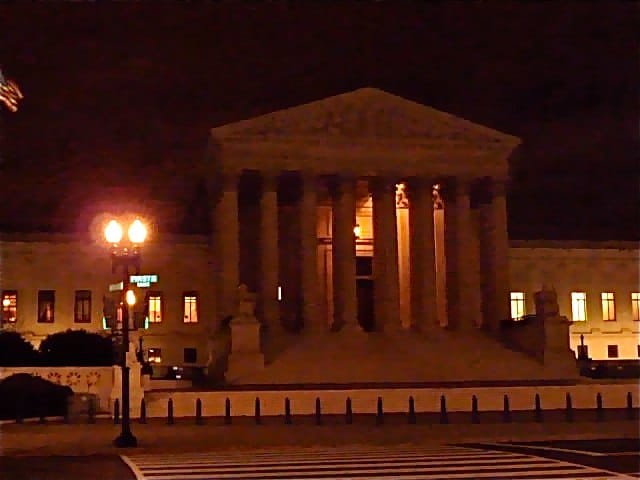Abitron on Remand
Last year, in Abitron Austria GmbH v. Hetronic International, Inc., the Supreme Court held that the federal trademark statute—known as the Lanham Act—applies only to domestic conduct infringing U.S. trademarks. A group of Austrian and German companies collectively known as “Abitron” placed U.S.-protected trademarks owned by a U.S. company, Hetronic, on products made in Europe. Some of…
Continue ReadingDistrict Court Permits Clean Air Act Action Against Canadian Company
The presumption against extraterritoriality is the principal tool that U.S. courts use to determine the reach of federal statutes. Last year, in Abitron Austria GmbH v. Hetronic International, Inc. (2023), the U.S. Supreme modified the presumption by requiring conduct relevant to a provision’s focus to occur in the United States in order for the application…
Continue ReadingThe Extraterritorial Reach of Criminal Statutes
When federal statutes do not indicate how far they reach, courts apply a presumption against extraterritoriality to limit their geographic scope. Last year, in Abitron Austria GmbH v. Hetronic International, Inc. (2023), the Supreme Court revised the presumption by requiring conduct in the United States for a statute’s application to be considered domestic. Meanwhile, lower courts…
Continue ReadingSupreme Court Denies Cert in Extraterritorial Wire Fraud Case
The Supreme Court denied cert this morning in Elbaz v. United States, a case involving the extraterritorial reach of the federal wire fraud statute. The order lets stand a decision of the Fourth Circuit holding that the wire fraud statute could be applied to a scheme to defraud investors centered in Israel based on two…
Continue ReadingWill the Supreme Court Resolve the Circuit Split on the Geographic Scope of Wire Fraud Statute?
The federal wire fraud statute is a workhorse for federal prosecutors. In 2021, there were more than 4,500 federal prosecutions for fraud, theft, or embezzlement, constituting 8% of federal criminal cases. The wire fraud statute is particularly important in transnational fraud cases, because communicating with people in the United States using U.S. wires is considered…
Continue ReadingThe New (Old) Presumption Against Extraterritoriality
The reach of U.S. law keeps changing. For decades—in fact, off and on for more than a century—U.S. courts have turned to the presumption against extraterritoriality to determine the geographic scope of federal statutes. When the presumption changes, so does the reach of U.S. law. And the presumption has changed a lot lately. Most recently,…
Continue ReadingSupreme Court Roundup (October Term 2022)
During its 2022 Term, which ended four weeks ago, the Supreme Court decided five cases with important implications for transnational litigation. The questions included whether the Foreign Sovereign Immunities Act (FSIA) applies to criminal proceedings; the standard for aiding and abetting under the Anti-Terrorism Act (ATA); whether states may exercise general personal jurisdiction over foreign…
Continue ReadingAbitron Eliminates Circuit Tests but Causes More Confusion
During the oral argument in Abitron Austria GMBH v. Hetronic International, Inc., Justices Alito, Sotomayor, Gorsuch, and Barrett all expressed concern over whether the Court should overrule its 1952 decision in Steele v. Bulova Watch Co (1952). A reader of the Court’s majority decision by Justice Alito might be surprised to see that the majority…
Continue ReadingTwo New Supreme Court Decisions on the Presumption Against Extraterritoriality
The end of the Supreme Court’s term brought two decisions on the presumption against extraterritoriality, a significant and contested interpretive canon for federal statutes. Yegiazaryan v. Smagin ruled 6-3 that a civil RICO suit based on an alleged scheme to fraudulently conceal assets belonging to a U.S. judgment debtor had sufficient domestic content to fit…
Continue ReadingWhat is a “Domestic Application” of the Lanham Act? The Supreme Court Creates More Questions than It Answers
In Abitron Austria Gmbh v. Hetronic International, Inc., the Supreme Court appears to have returned to its recent preference for bright-line rules in cases assessing the extraterritoriality of federal statutes, but the brightness of this rule will dim as other fact patterns are considered.
Continue Reading






